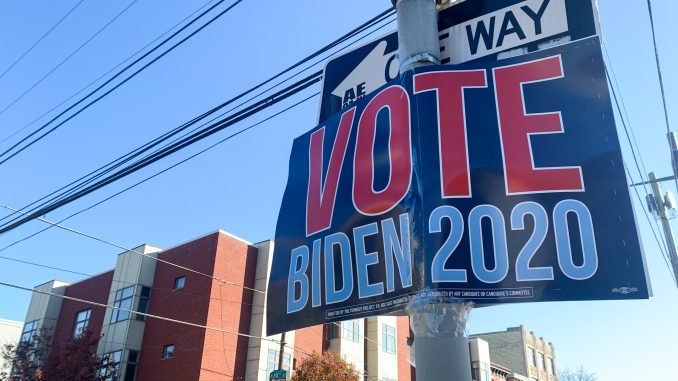
When it comes to politics, people go out of their way to find information that supports their beliefs.
That’s according to a study by Vinod Venkatraman, a marketing and supply chain management professor, and Luis Casado Aranda, a professor at University of Granada in Spain, who examined the role bias played into people’s opinions of political parties in Spain.
”We always look for things that are consistent with our beliefs,” said. “We try to just ignore information that doesn’t fit our beliefs.”
For the study, Venkatraman and Casado Aranda surveyed 20 people in Andalucía, a southern region in Spain, who supported either the conservative Partido Popular, or the People’s Party, and the liberal Spanish Socialist Workers’ Party, or PSOE.
To conduct the study in 2018, they showed participants a party name, with messages like “this party makes better use of public funds,” or “this party has been involved in forging documents,” Venkatraman said. Participants would then indicate how much they agreed or disagreed with each statement.
Through their research, Venkatraman and Casado Aranda found that people are more supportive of positive messages about their own political party and more willing to agree with negative messaging about the party they oppose, he added.
Their research, “Does Partisan Bias Modulate Neural Processing of Political Information? An Analysis of the Neural Correlates of Corruption and Positive Messages,” was published in February in the online journal Political Psychology.
The survey asked participants to evaluate how much they support or disagree with the party based on the message, Venkatraman said.
“So people are rating them, but at the same time, we are also measuring how the brain is processing these messages as a function of the party affiliation that they have,” he added.
The study found people had greater brain activity when processing negative information about the party they oppose and showed people are supportive of their party and what that party believes in, Venkatraman said.
People have a way of justifying or ignoring corrupt things the party they support does, and when they hear something dismissive about the opposing party, their disagreement increases, he added.
Because people who support the Republican Party and the Democratic Party seek out different news sources and interpret information differently based on their identity, most voters already have opinions on political issues, the Harvard Gazette reported.
While the study was completed in Spain, some of the broader findings can be applied to the U.S. election and politics, Venkatraman said.
“We’ve spent greater amount of time trying to look for negative information about the opposition party, and that feeds into this belief that, ‘Oh, my party is a better party,’” he added.
Kevin Arceneaux, a political science professor, said that since January, most voters’ perspectives on the 2020 presidential candidates did move much, if at all.
This confirms a deep political divide in the parties and in U.S. politics in general, Arceneaux added.
“It’s almost like neither candidate could do anything wrong that would make their supporters think differently,” Arceneaux said. “So that’s kind of where we’re at right now in terms of partisan bias is that it basically completely short circuits a lot of people’s willingness to even think negative things about their own party.”
When people get negative news about the party they support, they reject it, believing the facts are biased, and their opinions are not affected, Arceneaux said. But, if people hear negative information about the opposing party, they are more likely to accept the information.
“If that’s how you’re going to, you know, you’re going to treat the same facts with different standards of evidence, well, that’s bias,” he added.
Sheila Saberry, a junior electrical engineering major, has seen an increased number of political advertisements on her social media, but thinks that bias against opposing parties has always been there, she said.
“It’s much more ramped up this year,” Saberry said. “I’m getting a lot of ads on Instagram and Youtube and anywhere on the internet. The bias hasn’t really changed, it’s just the frequency of everything we’re bombarded with right now.”
While she has been trying to block out most of the political ads she sees about each party, Saberry frequently sees negative information about the Republican Party from the Democratic Party, and vice versa, she said.
“Both parties try to say both parties are trying to end our freedom and end America in some way or manner,” she said.
But, they did not impact the way she voted, Saberry added.
Since the study that Venkatraman worked on only polled people who had fixed political views and openly supported one party or the other, Venkatraman is curious to see how political bias affects swing voters, he said.
“If you do not have such strong views, and you are somewhere in the middle, then can you be switched?” Venkatraman added. “And if you can be switched, would you be more likely to be switched with the negative messages or positive messages? I think that’s an open question that hopefully we will get to studying someday.”
Correction: A previous version of this story incorrectly stated the publication date of January. The study was published in February.



Be the first to comment